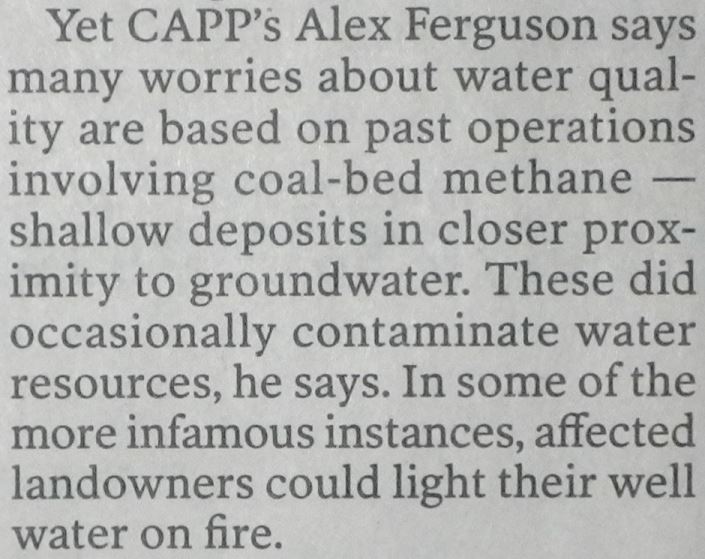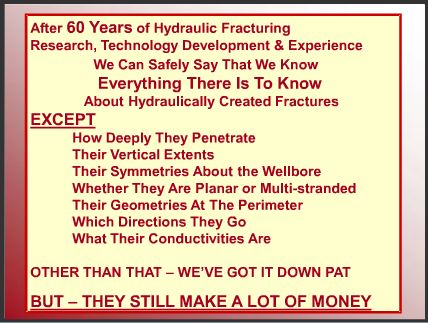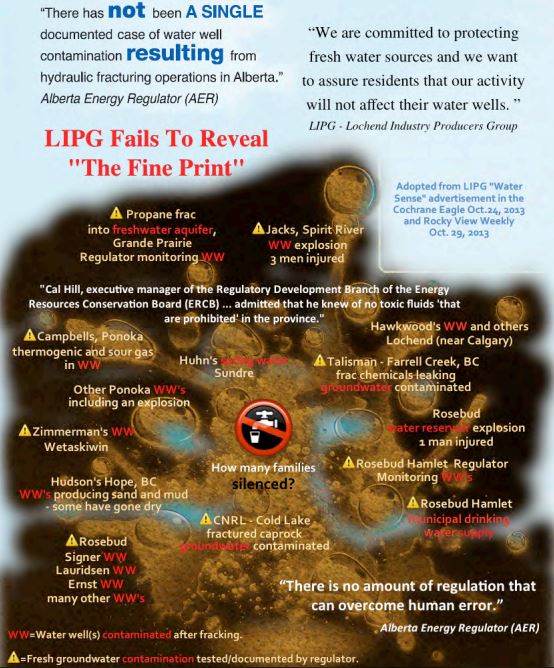CAPP speaks on natural gas and fracking by Gord Fortin, October 31, 2014, Edson Leader
The Canadian Association of Petroleum Producers (CAPP) held an open house where they discussed fracking as well as natural gas industry happenings.
The event was hosted by the Edson and District Chamber of Commerce and held on Oct. 27 at the Galloway Station Museum. There CAPP manager, natural gas communication and outreach, Chris Montgomery spoke to a crowd of Town of Edson officials, industry professionals as well as residents.
Montgomery spoke about the Alberta Duvernay lands. There has been a rapid increase in work their producing natural gas from the shale gas found in the Duvernay. He said that 94 wells were drilled in the area last year.
He described natural gas as a highly competitive market. He feels Canada can compete in that marked but their strategy needs to be worked out.
He pointed out that Canada’s political stability makes us an attractive business partner. Canada is also much closer to the market in Asia than some competitors. Canada’s cold climate also comes into play as well. Due to the cold, the process of turning gas into liquid is easier. [Will the cold end up freezing Canadians with Mr. Harper giving away our rights and resources to China?]
Business agreement in this field come with long-term contracts, he said. “That is just to ensure a recap those capitol costs,” Montgomery said. He said it is a healthy industry overall. Most wells will see some activity so it can be worth a business risk. A well is currently estimated to have anywhere between a 20 to 30 year lifespan.
He next addressed fracking and water contamination.
“It (water contamination) is quite impossible with today’s technology,” he said.
He said that fracking does have its risks but they are not that bad. He explained that contaminations to ground water are unlikely because the process of fracking cannot create the pressure needed to contaminate ground water. It cannot get into the aquifer.
“But we do recognize there are concerns,” he said.
To address any concerns, he pointed out that Alberta’s oil and gas industry is heavily regulated comepared to other jurisdictions. He added that some of the other jurisdictions come and see the Alberta regulations.
CAPP also works with government to better regulations because they want to make sure natural gas extraction is done in the safest possible way.
“We work with government to enhance regulations,” he said. [Enhance or deregulate? And under the New West Partnership deal in 2010, is the public paying for the millions in ads by CAPP trying to make Canadians believe fracing is safe?]
He said CAPP takes the environment very seriously. They realize that as the industry grows, so does the footprint they leave behind. That footprint does not nessessarilly need to be as big as it could be, according to Montgomery.
They look for alternate sources of water to be used for fracking. They do not use fresh water. [Really?] Water that is used will be recycled. [Really?]
Finding alternate sources of water can be a challenge in a dry area. Alternatives can be using municipal wastewater, a practice currently being used. [Emphasis added]
[Refer also to:
CAPP’s Confession, two months earlier :
There are proven cases of frac’ing contamination
Industry group fracing NW of Calgary Fails to Reveal “The Fine Print”
2009 11 01: National Energy Board Primer for Understanding Canadian Shale Gas
However, as a technology driven play, the rate of development of shale gas may become limited by the availability of required resources, such as fresh water….
Flow-back water is infrequently reused in other fracs because of the potential for corrosion or scaling, where the dissolved salts may precipitate out of the water and clog parts of the well or the formation.
…
Finally, there are some environmental concerns with development of shale gas in Canada. Little is known about what the ultimate impact on freshwater resources will be. [Emphasis added]



